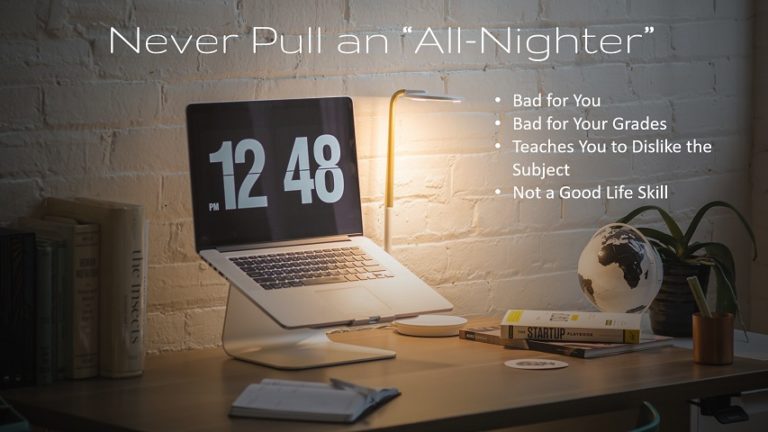How to Get the Most out of Your Chemistry Study Group
Chemistry is a required subject for a wide range of college majors, and the experience is often different from other classes. We’ve addresses some of the approaches how to succeed in chemistry in other posts on when to take a chemistry class, how to develop good chemistry skills, how to study chemistry, and how to avoid a bad professor. So now, when you’re taking the class, you’re probably noticing a few things. At first, the rules that govern the very small do not seem compatible with the rules that govern our daily lives. To succeed in chemistry, students must challenge many of their assumptions about reality and develop a new way of analyzing problems. This process is difficult to achieve alone because it is hard to spot your own misconceptions. Students working as a team, however, develop a much stronger understanding of chemistry by examining multiple viewpoints and exposing each other’s hidden weak points. While many students recognize that group study might benefit their grades in chemistry, most will not take the initiative to start one. If you want a chemistry study group, then you probably need to start it yourself. This process might seem intimidating, so I have outlined some tips for starting and getting the most out of a study group below.
Tips for making a chemistry study group
The obvious first step in making a study group is to invite other people. It might be tempting to only ask your friends, but this strategy will hurt you in the long run. The goal is to improve your score in a challenging class, not to boost your popularity. Be selfish and find three to five of the smartest people in your chemistry class you can find. The members of your group should be reliable, serious about learning chemistry, and have a broad range of backgrounds and skills so that everyone can contribute something unique to the group. This probably means reaching outside your group of friends. Inviting strangers might be intimidating, but top-tier chemistry students will be happy to join even if they don’t know anyone in the group because they recognize the benefit.
After you have asked around and gotten a few people who seem interested, it’s a good idea to start setting expectations and make sure that everybody has similar goals. There are a lot of different ideas about what a study group should be, and if everyone has vastly different expectations, then your endeavor is likely to fail. Ideally, everyone would want to meet regularly (not once right before a test), to improve their skill (not copy answers), and have the same ideas about which topics will be covered and how.
Tips for managing your chemistry study group
Ok, let’s assume you have put together a smart and diverse group of people with similar study goals who have committed to meeting regularly. Now what? Unlike a group of friends hanging out, the chemistry study group needs some degree of structure. You will probably need a moderator to keep track of all the scheduling issues and to help manage group discussions. Since you put the group together, the role falls to you by default. However, you also have the option to delegate some or all the responsibilities of the moderator to someone else. You might want to designate somebody you trust to keep everyone on task, hold a vote on what material to study, or have a rotating system where a new person is in charge every week. Whatever you decide on there are a few general responsibilities that you need to make sure someone is handling. Otherwise, groups tend to degenerate into unfocused chatter and eventually end because nobody bothered to schedule the next one.
The first responsibility of the moderator is going to be managing the group while they are not meeting. They will need to communicate with everyone and find a time and a place for meeting. University libraries is the standard location, but there are also other options. For instance, many chemistry departments have desks or rooms set up for students (just imagine how pleased your chemistry professor will be to see you discussing the last lecture material with your study mates!), or you could ask a café to host your group. If you’re curious how to set up a perfect study space, check out this article. You can easily appropriate most of the tips there towards a chemistry group study space.
Meeting length is also important. Try to allocate between 1-3 hours of dedicated study time every meeting. Shorter and you won’t have time to get anything done. Longer and you will hit diminishing returns as the members of your group become exhausted.
The other responsibility of the moderator is formatting the meetings to coincide with the goals of the group, and to keep the pace of the meeting while it is in session. There are many ways to format a study group, but they fall into two categories.
- Either the group solves a set of problems such as a homework assignment, or the questions at the end of a chapter.
- Or, they engage in a more open discussion about general topics. In a discussion format, each student might be assigned a different chapter in the book and then be responsible for explaining it to the rest of the group, or it might be free-form where you go around the table, and each person asks the group questions they don’t understand.
Whatever the format looks like, make sure the other members of the group know what they can expect and give them time to prepare any material they need to bring to the meeting.
Tips on getting the most out of your chemistry study group
Up until this point we have been talking about how to make a chemistry study group work, but it’s also essential that you know how to get the most out of that group personally. To do this, you need to understand that study groups are very good at taking students who have studied hard and propelling their knowledge to the next level. The more prepared you are going into a study group, the more value you will get out of your time there. Learn the primary material on your own and spend group time learning high-level stuff. Since group time should be when you are rising to the most difficult content you want to be focused and thinking clearly. Do your best to be well rested and have a healthy snack the day of the study group.
The downside of study groups is that students who are not engaged get very little value from it. These students will waste their time asking simple questions or waiting for someone else to solve their homework. It’s cliche to say that people who do this are cheating themselves, but if you let everyone else in the group do your work for you, then you are better off not going to the study group at all. Force yourself to engage the group and the material as much as you can. If you think you know the answer to a question, explain it to another group member. If someone is teaching you something, ask questions at every step, and never let them write the answers down for you. The act of working through a problem by yourself (whether teaching someone or learning from someone) will help you remember what you learned and show you the exact part you don’t understand yet. For the same reason you need to be very firm that other group members don’t act like leeches and just show up to copy the answers.
The last piece of advice I have will benefit both you and your group. At the end of every session, have a brief wrap up and quickly make sure that you understand everything covered that day. Ask yourselves what went well and how you can do more of that in the future. Group study is a skill much like how individual study is a skill. The more time you spend with the group better, you all will become at encouraging and raise each other up.
Have you found some awesome study group tricks and approaches that worked for you in the past? Let us know in the comments!






